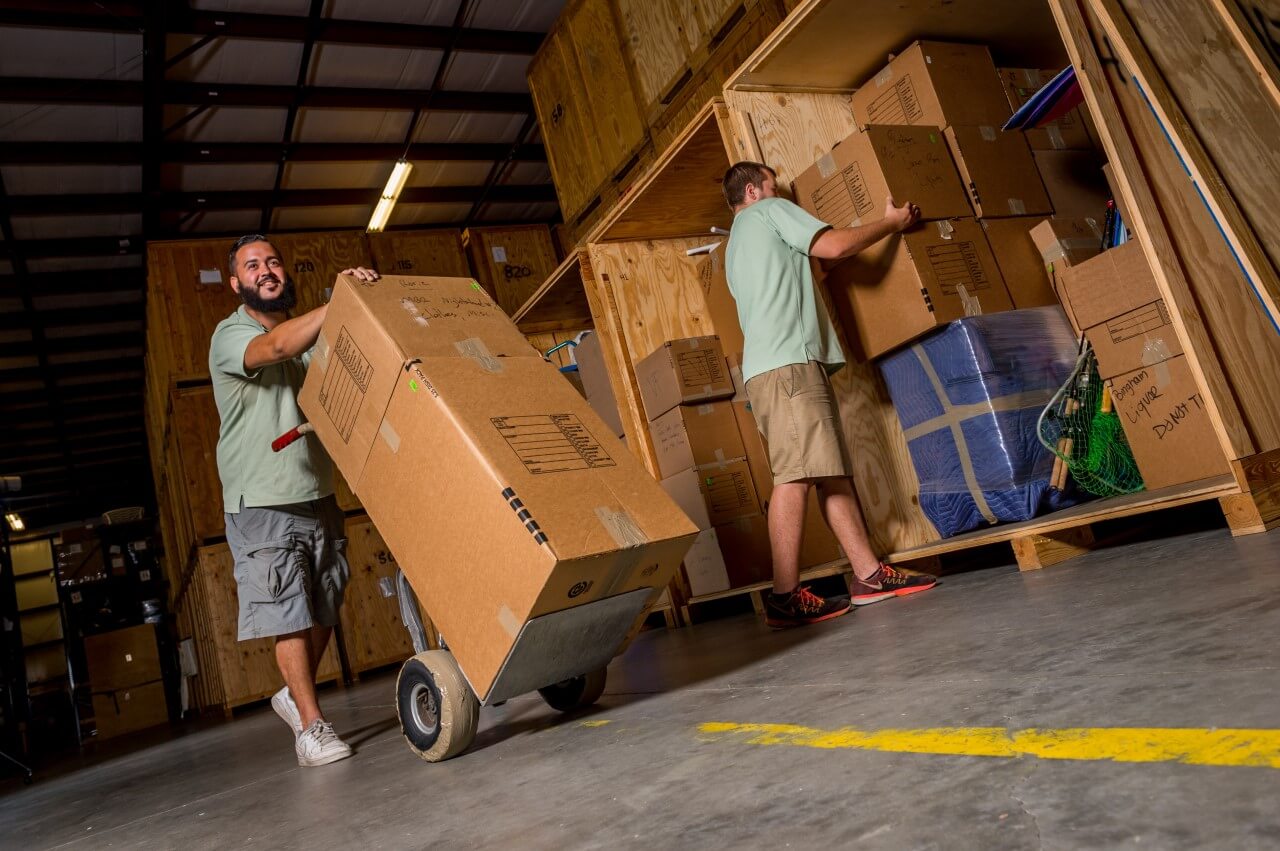WHO REGULATES MOVING COMPANIES? A COMPREHENSIVE GUIDE


Key Highlights
- Moving company regulation is split between federal and state oversight, depending on whether the move crosses state lines or stays local.
- The Federal Motor Carrier Safety Administration (FMCSA) regulates interstate household goods carriers and requires a USDOT number for compliance.
- State laws and consumer protection regulations govern intrastate moving companies, with licensing standards varying by location.
- Written estimates and clear contracts are essential for consumer protection in the moving industry.
- Key agencies like the Better Business Bureau and Office of Consumer Affairs handle complaints and provide verification tools for reputable businesses.
- Understanding regulation ensures your household goods are protected and helps you choose a trustworthy moving company.
Introduction
Navigating the intricate landscape of the moving industry can be overwhelming for consumers. Understanding the regulations governing moving companies is essential for ensuring a smooth transition to a new home. From compliance with federal regulations to specific state laws, each aspect plays a vital role in safeguarding consumer interests. This guide aims to clarify how moving companies are regulated, empowering individuals to make informed decisions during their relocation journey. Ultimately, knowledge leads to peace of mind as one embarks on this significant life change.
Overview of Moving Company Regulation in the United States

Regulation of the moving industry in the United States involves both federal and state oversight to ensure the safety and integrity of household goods transportation. The Federal Motor Carrier Safety Administration (FMCSA) establishes guidelines for interstate moving companies, requiring them to comply with safety regulations and possess a valid USDOT number. Meanwhile, state departments of transportation and public utility commissions govern local moves, ensuring adherence to consumer protection laws and licensing requirements. This dual regulatory framework aims to safeguard consumer interests across all moving scenarios.
Federal Oversight: The Role of FMCSA
The Federal Motor Carrier Safety Administration (FMCSA) plays a crucial role in regulating the movement of household goods across state lines. This agency establishes safety regulations that motor carriers must adhere to, ensuring consumer protection and compliance within the moving industry. By overseeing licensing, the FMCSA enforces guidelines that are fundamental to the safe transportation of belongings. Their comprehensive framework protects consumers and maintains a level playing field for reputable moving companies, safeguarding the interests of those engaged in interstate moves.
State-Level Regulation and Authorities
State-level regulation of moving companies plays a crucial role in safeguarding consumer interests. Each state possesses its own regulatory body, often housed within the Department of Transportation or a Public Utility Commission, ensuring compliance with state laws governing local and intrastate moves. These authorities oversee licensing, oversee safety regulations, and maintain consumer protection standards tailored to the state’s requirements. In addition, they handle consumer complaints, promoting transparency and accountability within the moving industry, thus ensuring peace of mind for families relocating to their new homes.
Regulation of Local vs. Interstate Moving Companies
Moving companies are subject to different regulatory frameworks depending on whether they operate locally or across state lines. Local movers primarily adhere to state laws and licensing requirements, while interstate moving companies must comply with federal regulations set by the Federal Motor Carrier Safety Administration (FMCSA). This distinction is crucial for ensuring consumer protection, as it dictates everything from safety regulations to documentation requirements. Consumers are encouraged to verify the appropriate licenses to guarantee compliance, ultimately safeguarding their relocation experience.
Distinctions in Licensing and Compliance
Licensing and compliance vary significantly between local and interstate moving companies. For interstate moves, the Federal Motor Carrier Safety Administration (FMCSA) requires household goods motor carriers to obtain a USDOT number, ensuring adherence to federal safety regulations. In contrast, local movers may only need to comply with state laws, which can differ widely. Understanding these distinctions is essential for consumers, as they impact a moving company’s legitimacy and the safety of transporting personal belongings across state lines.
Key Agencies for Reporting and Inquiry
Various agencies play pivotal roles in facilitating consumer protection within the moving industry. The Federal Motor Carrier Safety Administration (FMCSA) serves as a primary body overseeing interstate commercial motor vehicles, ensuring that regulations are upheld. For local issues, state departments of transportation and public utility commissions provide resources for reporting complaints and inquiries. Consumers can also turn to the Better Business Bureau for insights on reputable businesses and to file grievances, enhancing their peace of mind throughout the moving process.
Essential Laws and Regulations Governing Moving Companies
Numerous federal statutes and state laws shape the landscape of the moving industry. The Federal Motor Carrier Safety Administration (FMCSA) oversees interstate movers, ensuring compliance with safety regulations and licensing requirements. Additionally, states implement their own regulations for local moves, often through their Department of Transportation. Important documents, such as the bill of lading, provide essential consumer protection, outlining responsibilities and rights during the transportation of household goods. Understanding these regulations is crucial for selecting a reputable moving company.
Federal Statutes Affecting Interstate Movers
Regulatory frameworks play a critical role in the moving industry, particularly for interstate moves. Federal statutes, such as the Household Goods Motor Carrier Act, ensure the safe transportation of household goods across state lines. This legislation provides essential consumer protection by mandating written estimates and clear billing practices, including the issuance of a bill of lading. Adherence to these statutes not only enhances compliance for moving companies but also safeguards consumers, ensuring their belongings are transported securely and efficiently.
Common State Legislation and Regulatory Requirements
Various state laws establish essential regulations governing moving companies, particularly those involved in the transportation of household goods. Each state often requires specific licensing and adherence to safety regulations to ensure consumer protection during local moves. Public utility commissions oversee local movers, while intrastate and interstate moving companies must comply with both state and federal regulations. Agencies may mandate written estimates and documentations, protecting consumers and minimizing complaints about service delivery, ultimately promoting trust within the moving industry.
How to Verify a Moving Company’s Credentials
Verifying a moving company’s credentials is crucial for ensuring consumer protection. Start by checking for proper licensing through the USDOT number, which can be found on their documentation or website. Confirm their registration with relevant state departments of transportation for local moves. Utilizing online tools like the Better Business Bureau can also provide insights into consumer complaints and reviews. This diligence will foster peace of mind, allowing you to confidently choose a reputable moving company for your relocation needs.
Checking Licenses, Registrations, and Certifications
Verifying the credentials of a moving company requires diligence in checking licenses, registrations, and certifications. Begin by examining their USDOT number through the Federal Motor Carrier Safety Administration (FMCSA) database, which ensures compliance with federal regulations. Additionally, state departments of transportation maintain licensing details specific to intrastate movers. Certified and reputable businesses often showcase their credentials prominently on websites or in promotional materials, providing peace of mind to consumers that their belongings are in safe hands during the relocation process.
Online Tools for Consumer Protection
Various online tools enhance consumer protection, ensuring you choose a reliable moving company. Websites like the Federal Motor Carrier Safety Administration (FMCSA) provide valuable information, allowing users to check USDOT numbers and licensing status. Additionally, platforms such as the Better Business Bureau gather consumer complaints, offering insights into reputations and experiences. Utilizing these resources empowers individuals during their relocation journey, granting peace of mind that their household goods will be handled safely and legally throughout interstate moves.
Conclusion: William C. Huff complies with all regulation guidelines.
William C. Huff exemplifies a commitment to excellence by strictly adhering to all moving company regulations. This approach not only ensures compliance with federal oversight from the FMCSA but also aligns with state laws governing the transportation of household goods. By maintaining the highest standards for licensing and safety regulations, clients can enjoy peace of mind during their relocation. Choosing a regulated and reputable business like William C. Huff guarantees that all consumer protection and regulatory guidelines are thoroughly met.
Frequently Asked Questions
How can I find out if my moving company is federally regulated?
To determine if your moving company is federally regulated, check the Federal Motor Carrier Safety Administration (FMCSA) database. Look for their DOT number and confirm they have the necessary licenses. This ensures compliance with federal laws for interstate moves.
Are there differences between local and long-distance mover regulations?
Yes, local and long-distance mover regulations differ significantly. Local movers typically adhere to state regulations, while long-distance movers must comply with federal regulations. These differences affect licensing, insurance requirements, and consumer protection mechanisms, ensuring that each type of mover operates within its legal framework.
Where can I report fraud or safety violations by moving companies?
You can report fraud or safety violations by moving companies to the Federal Motor Carrier Safety Administration (FMCSA) for interstate issues. Additionally, each state has its regulatory agency where you can file complaints regarding local movers. Check official websites for specific reporting procedures.



